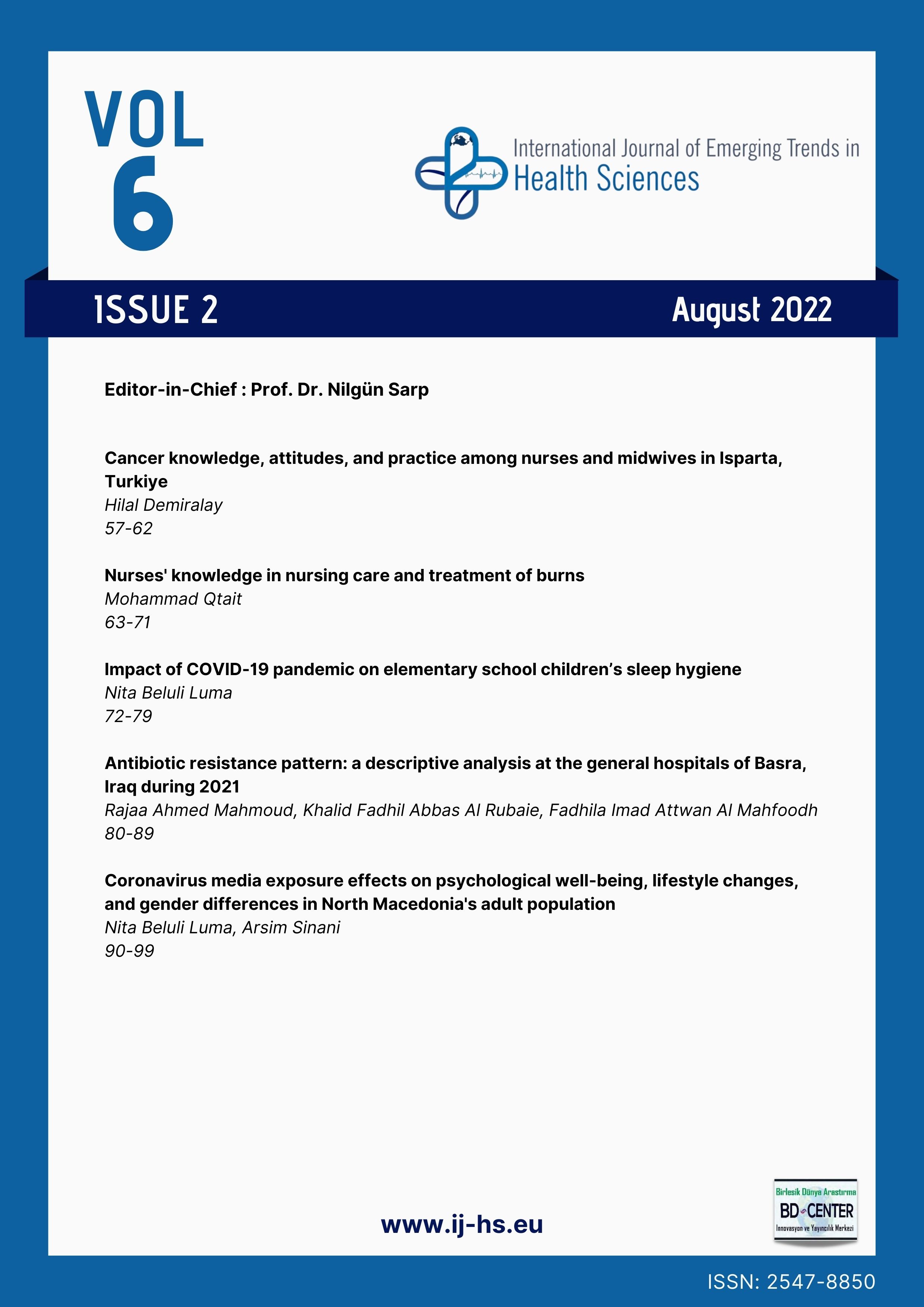Antibiotic resistance pattern: a descriptive analysis at the general hospitals of Basra, Iraq during 2021
Main Article Content
Abstract
Antimicrobial resistance is a major problem in the new history of medicine all over the world. However, there are no previously available data on the exact situation or the extent of the problem in Basra to estimate the overall prevalence of antibiotic resistance by specifying it according to the causative organisms in Basra general hospitals during 2021. The study is a descriptive analysis that was conducted in 5 main hospitals in Basra, Iraq in 2021. Data related to the causative microorganisms and the antibiotic selection from 1384 patients were included. Overall, resistance against Penicillin G, Amoxicillin, Cefuroxime, and Cefixime was found to be the highest. Pneumonia, Enterococcus faecalis, and Proteus mirabilis were included in the study and found to be resistant to a wide range of antimicrobial agents. Overall, there is a high prevalence of antimicrobial resistance in Basra. And to address the problem, specific actions need to be taken at the individual, institutional, and national levels.
Keywords: Antibiotic; antimicrobial resistance; prevalence; hospitals.
Downloads
Article Details

This work is licensed under a Creative Commons Attribution-NonCommercial-NoDerivatives 4.0 International License.
Authors who publish with this journal agree to the following terms:
- Authors retain copyright and grant the journal right of first publication with the work simultaneously licensed under a Creative Commons Attribution License that allows others to share the work with an acknowledgement of the work's authorship and initial publication in this journal.
- Authors are able to enter into separate, additional contractual arrangements for the non-exclusive distribution of the journal's published version of the work (e.g., post it to an institutional repository or publish it in a book), with an acknowledgement of its initial publication in this journal.
- Authors are permitted and encouraged to post their work online (e.g., in institutional repositories or on their website) prior to and during the submission process, as it can lead to productive exchanges, as well as earlier and greater citation of published work (See The Effect of Open Access).
